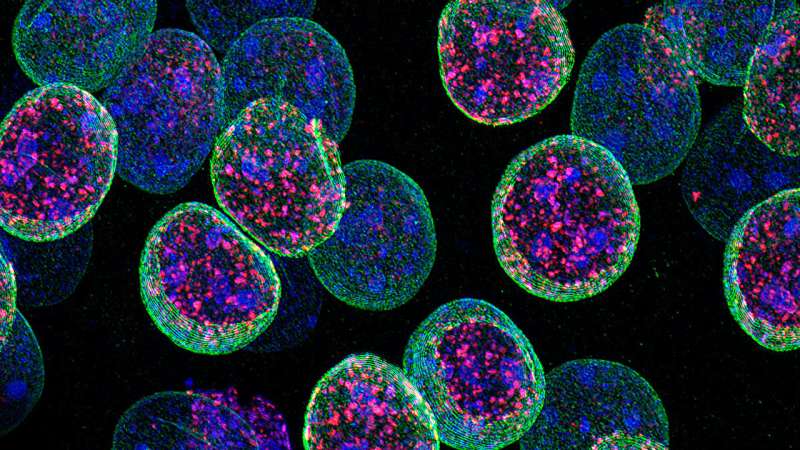This article has been reviewed according to Science X's editorial process and policies. Editors have highlighted the following attributes while ensuring the content's credibility:
fact-checked
peer-reviewed publication
trusted source
proofread
Study reveals the role of the protein Kdm1a in maintaining neuronal identity

Epigenetic processes allow different cell types to emerge from a single genome. Throughout development, cells differentiate and acquire distinct characteristics by expressing the same genome in different ways.
However, a less-known aspect of this process is how cells maintain their unique identities over time. A study led by the Transcriptional and Epigenetic Mechanisms of Neuronal Plasticity laboratory, headed by Angel Barco at the Institute for Neurosciences, a joint center of the Spanish National Research Council (CSIC) and the Miguel Hernández University (UMH) of Elche, has determined that the protein Kdm1a plays a crucial role in preserving the identity of neurons.
Neurons are cells that have a very particular nuclear structure because once they are formed during development they never divide again, which is why neurons need to maintain their identity throughout their lifespan precisely. "Identity is given by what is done and what is not done; at an epigenetic level, this translates into the genes that are expressed, but also in those that are not expressed," explains Angel Barco.
The results of this study, published in the journal Nature Communications, demonstrate that deleting Kdm1a in forebrain neurons in adult mice triggers the expression of genes that normally should not be expressed in neurons, which compromises neuronal identity.
The researchers verified that in normal elderly mice, there is an incipient activation of the same genes derepressed in mice that have lost Kdm1a, indicating that natural aging reproduces the same defects as the lack of Kdm1a, although on a smaller scale. They found that eliminating this protein accelerates neuronal aging at an epigenetic level and alters gene transcription.
The experts correlated these findings with human data by collaborating with researcher José Vicente Sánchez Mut, who leads the Functional Epi-Genomics of Aging and Alzheimer's Disease laboratory at the IN. They used a database of people between 50 and 80 years old and found that there is also a significant increase in the expression of some of these typically silent genes as people age.
Furthermore, this work shows that the repressive function of Kdm1a maintains the separation between genes that should be expressed and those that should be silent through the modulation of chromatin structure.
The separation into "compartments" allows the maintenance of order throughout the lifespan of the neuron, which is essential to preserve its identity. "We know that disorder can have detrimental effects, both in aging and in intellectual disability, because it blurs the barrier between what should be expressed and what should not," says Beatriz del Blanco, first author of the article.
To understand the role of Kmd1a in compartmentalization, the researchers conducted an experiment, in collaboration with Yijun Ruan, former director of the Jackson Laboratory for Genomic Medicine, in which they used a technique that shows how DNA folds inside the cell nucleus, and how it is organized in three dimensions. These data were contrasted with images obtained using super-resolution microscopy.
Both approaches indicated that some repressed genes began to be expressed because the barriers that delimit active and inactive areas of the chromatin are weakened after Kdm1a loss.
More information: Beatriz del Blanco et al, Kdm1a safeguards the topological boundaries of PRC2-repressed genes and prevents aging-related euchromatinization in neurons, Nature Communications (2024). DOI: 10.1038/s41467-024-45773-3


















